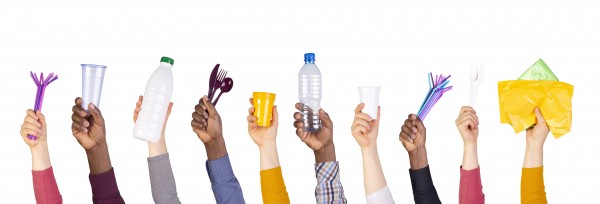One to one implementation
The guideline implements the provisions of the SUP guideline 1: 1 in German law. Plates, cutlery, drinking straws and stirrers made of single-use plastic will be banned from the food service sector on July 03, 2021. The ban also includes styrofoam service packaging and generally products made of oxo-degradable plastic. Unlike France, the BMU does not go beyond the prohibitions set out in the SUP directive.
Definitions of plastic lead to legal uncertainty
The BMU also adopted the definition of "plastic" unchanged from the guideline. After that, plastic is a polymer that is considered:
- Main structural component of end products can function
- except natural polymers
- that have not been chemically modified
A "disposable plastic article" is when an article is made "entirely or partially" of plastic. There is still legal uncertainty about the practical meaning of the definitions, and books about their effects on products could be filled.
Drafting guidelines from the EU Commission do not help
In order to clarify the plastic definitions and to further clarify whether an article is to be regarded as a single-use plastic article in the sense of the directive or not, the Commission has committed itself in the SEA directive to publish guidelines on single-use plastic articles. A first draft has been submitted by the consulting firm Ramboll on behalf of the Commission.
According to this, a plastic article would already be available if polymers - regardless of their mass share in the overall product - are essential for the intended function of the product. This could also apply to paper packaging that is coated or contains chemically modified starch or cellulose compounds. Even polymer-containing printing inks, with which legally required markings are applied, could lead to a classification as plastic. With the one-way plastic ban regulation now presented by the BMU, bans could also apply to paper plates. Lawyers have already indicated that the Ramboll definition contradicts the text of the directive and would therefore be illegal. Furthermore, it would not be possible to enforce such a regulation.
The guidelines presented have therefore further increased legal uncertainty. On April 24, the nation states negotiated the definitions. As has been heard from Brussels, numerous countries have expressed dissatisfaction with the definitions and have called for improvements. The Commission has apparently maneuvered itself into a definitive dead end with its hastily adopted directive. One solution could be to specify a limit value for plastics that can be contained in products without leading to a classification as a plastic product. This could be a plastic content of 9 percent, for example. For example, if paper packaging contained less than 9 percent plastic, it would not be covered by the SUP directive.
Since the one-way plastic ban regulation takes over the plastic definitions from the SUP directive, much depends on the further developments in Brussels.
More information can be found here:
Federal Government's draft bill
Guidelines

